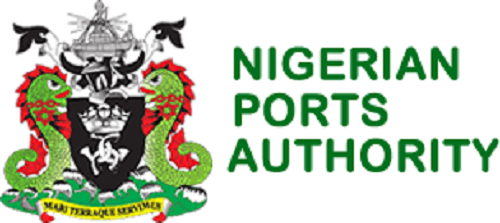Despite the impact of the COVID-19 pandemic on global trade and the supply chain, Nigerian Ports Authority (NPA) said its Internally Generated Revenue (IGR) between January and September 2021 increased by about 20%, even as it remitted the sum of N89.9 billion into the Consolidated Revenue Fund (CRF) account of the Federal Government.
The Acting Managing Director of NPA, Mohammed Bello Koko, in a presentation to the House of Representatives Committee on Ports and Habours recently, said the authority has also significantly reduced its operating expenses.
Koko said as at the end of September 2021, NPA earned N256.28 billion in IGR as against the projected revenue of N214.65 billion for the same period, representing an increase of 19.4%. The revenue is the highest nine months revenue in the history of NPA.
For operating expenses, as at the end of September 2021, actual spending stood at N55.1 billion as against the budgeted figure of N65.49 billion, comprising employees’ benefits, pension costs, towage services, supplies, repairs/maintenance and other administrative overheads. This indicates a savings of N10.39 billion or 16% of the budgeted sum.
Koko also said that as at the end of October 2021, NPA had remitted an operating surplus of N62.66 billion into the Consolidated Revenue Fund account in line with the provisions of the Finance Act 2020, “while a cumulative sum of N89.9bn has been transferred to the CRF in the last six months”.
He said at the current state of increased revenue drive, NPA will exceed its 2021 revenue projections and the projected transfer to the CRF for the year.
The NPA helmsman informed the House Committee that contrary to reports insinuating that Nigerian ports are the most expensive in the sub-region, a study commissioned by the Authority with the support of UKAid in 2019 indicated that it is cheaper for general and container vessels to berth in Nigeria than in Ghana or Togo.
He said aside the towage dues, which were reviewed in 2015; port tariffs in Nigeria have remained the same since 1993.
Koko said following his assumption of office in May this year, the NPA management has taken deliberate steps to reposition the agency to focus on cost-optimization and quality service delivery, while maximizing business value for port operators and users.
He said to support the economic diversification agenda of the Federal Government through the promotion of non-oil exports, the authority has partnered with the Nigerian Export Promotion Council (NEPC) for the establishment of third party dedicated export terminals or export parks to be located in Lagos and Ogun states. The initiative is aimed at the processing, packaging and certification of exports under a single platform that houses all relevant agencies responsible for quality control and regulatory validation of exports before shipment. The objective is to enhance and fast-track Nigerian export cargo for shipment at the export parks without any further port clearance protocol. A pilot project has been established at the Lillypond truck terminal in Ijora, Lagos, while 10 other exports terminals are in the process of being certified to begin operations by the first quarter of 2022.
NPA is also in the process of consolidating its various electronic platforms under a unified port community system. The various digital platforms being used by NPA at present include Oracle Financials and Human Resources Planning, Enterprise Resource Planning, Revenue & Invoicing Management System (RIMS), e-Ship Entry Notice (e-SEN), Customs portal for online submission of bills, hyperion budgeting, 3CI, Eto (for port truck access control), and a harbours control system linked with 3CI for harmonization of vessel operations.


Comment here